Redefining the Fundraising Journey for Impact Startups
Working to change the story one social enterprise at a time
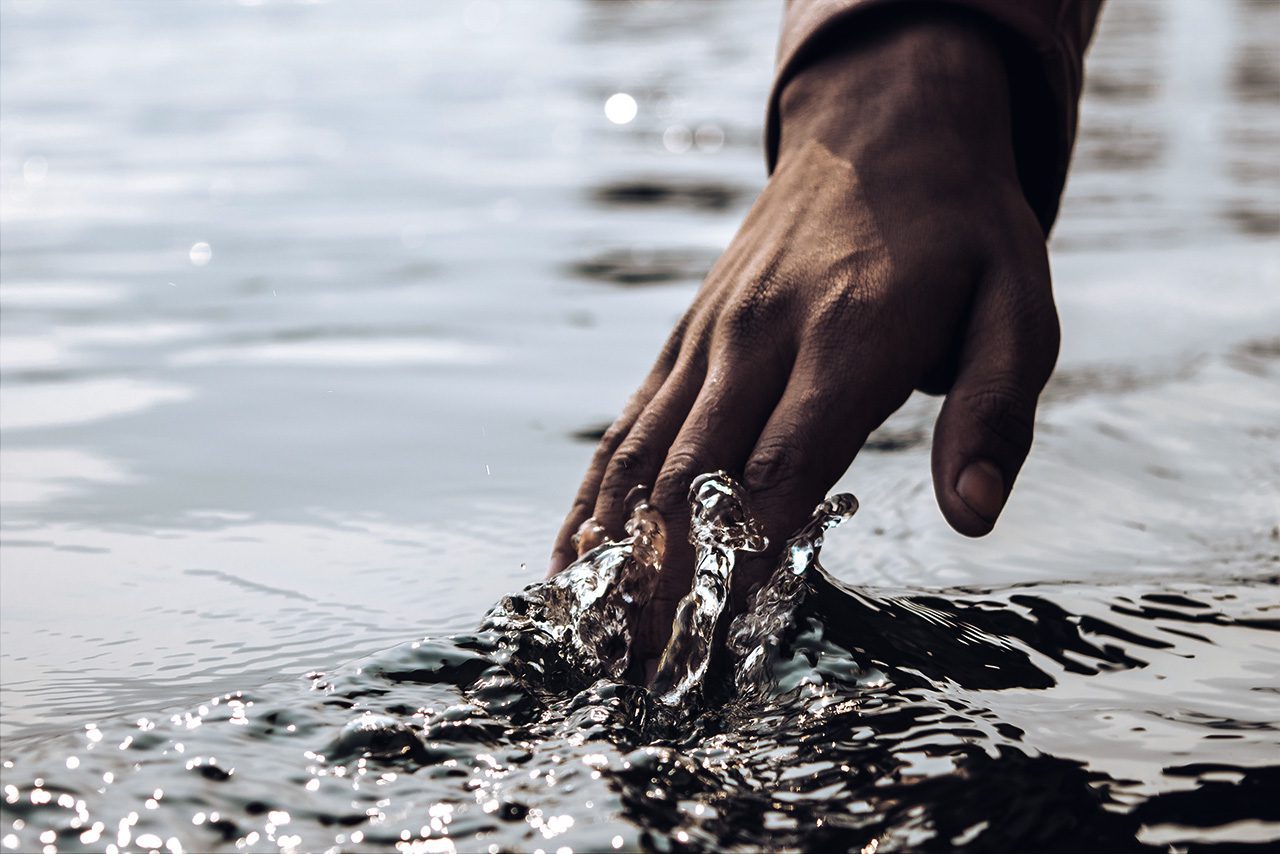
The way that climate change affects human beings is almost entirely through water, either too much or too little. The climate crisis is a water crisis at its core. — Tim Wainwright, chief executive of WaterAid
Climate change is triggering dramatic extremes in the global water cycle, which we’re experiencing more and more directly.
Here in the Western United States the issue is too little water, with a historic drought drying up trusted lakes, streams, and wells, and contributing to the intense wildfires that increasingly blanket our region in smoke for some months each year.
The Environmental Defense Fund summarizes scientific studies of how climate change is worsening drought worldwide, citing greater drought severity in the Mediterranean, Western Amazon, South Africa, Russia, India, Australia, and southern Europe. Human-caused climate change triggers droughts in at least three ways: Increasing temperatures cause more evaporation, drying out soils and vegetation; changing circulation patterns alter where storms develop and the path they follow; and increasing temperatures and changing precipitation patterns reduce snowpack volumes and lead to earlier, faster snowmelt, which reduces streamflow and the amount and quality of water available when it’s needed for vegetation, farming, and fishing.
In other regions, the problem is too much water, with heavier and more frequent storms causing flooding that can damage infrastructure and buildings and contaminate fresh water sources.
The UN Environment Programme describes how climate change is making record-breaking floods the new normal. For example, in late 2019 a series of storms in the UK dropped the equivalent of one month’s worth of rain in 48 hours in some locations. In July 2021, the eight inches of rain that fell in less than 24 hours in western and southern Germany flooded communities and caused more than 200 deaths. And in August 2021, areas in the U.S. state of Tennessee recorded more than 17 inches of rain — one-third of the region’s typical annual rainfall — in just 24 hours.
While the world’s governments try to address these issues from a top-down perspective, many communities — especially those living at or below poverty levels — are already suffering the effects of climate change-exacerbated water issues. In response, a number of social enterprises are stepping up to provide localized solutions to specific communities’ water-related issues.
A number of social enterprises are stepping up to provide localized solutions to specific communities’ water-related issues
At Miller Center for Social Entrepreneurship, we’re granted a front-row view of people and organizations dedicated to changing the story around climate change and water — from one of water excess or scarcity to one of resilience and hope.
Here are a few of their stories:
Founded in Singapore in 2012, ECOSOFTT (ECO Solutions for Tomorrow Today) takes a long-term view of water sustainability, not only providing clean drinking water but also working on wastewater recovery, rainwater harvesting, protection of rivers and lakes, and solid waste management.
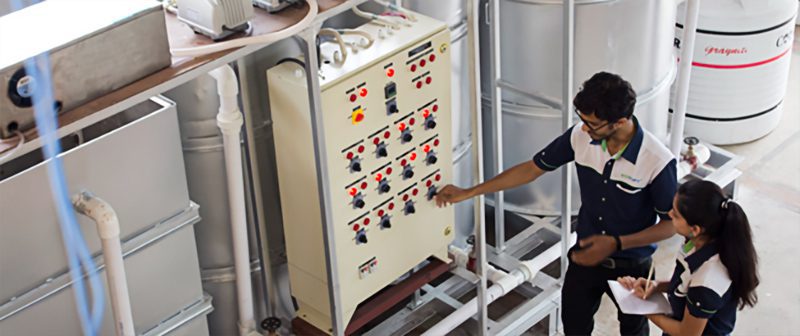
ECOSOFTT is pioneering solutions for effective water management in Southern and Southeast Asia (Photo Credit: ECOSOFTT)
To date, ECOSOFTT has implemented 70 projects in five countries — Singapore, Hong Kong, India, Indonesia, and Malaysia — with a 100% success rate. Collectively, their solutions treat and recycle 50 million litres of water a day, providing 300,000 people with improved access to water and sanitation systems, including 50,000 in India and Indonesia at the Bottom of the Pyramid.
“The effects of climate change are manifested through water, such as rising sea levels, prolonged droughts, and floods,” said Stanley Samuel, co-founder of ECOSOFTT along with Marcus Lim. “Effective water management is thus key to mitigate the effects of climate change and achieve greater resiliency.”
Headquartered in Indonesia, with operations in Kenya and Ethiopia, Nazava water filters provide access to safe, affordable drinking water. Established in 2009, Nazava aims to be the world’s premier water filter company and has impacted more than 600,000 people in 30 countries.
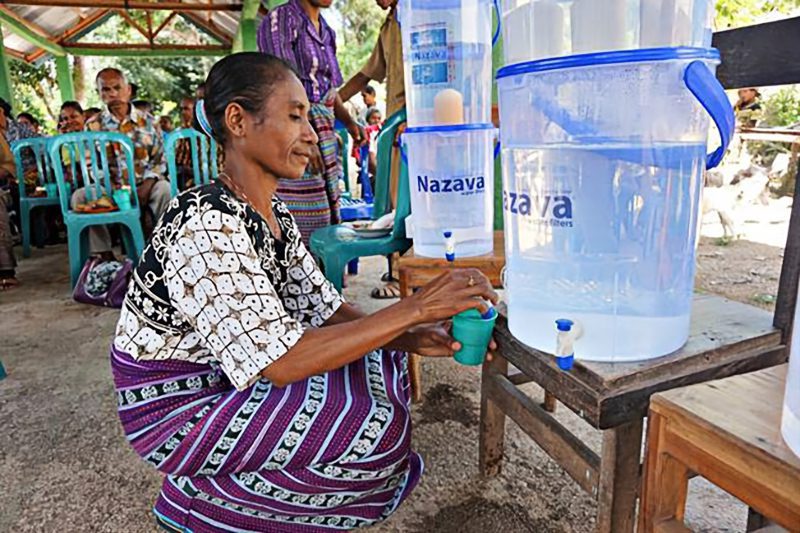
Nazava filters provides safe, affordable drinking water with no boiling for more than 450,000 households in Indonesia (Photo Credit: Nazava)
Nazava is the only company globally providing WHO-certified household water filters targeting low-income rural households living on less than US$7 per day. By charging customers for the water filters — including through partnerships with microcredit organizations that ensure affordability by enabling payment in up to 50 installments — Nazava ensures its own business sustainability. Marketing is done through healthcare workers and midwives, and sales meetings include community training on hygiene, water treatment, and waterborne diseases. “Nazava water filters help households become more resilient to climate change by expanding the range of potable water sources, providing alternatives to dried-up sources — even floodwater can be filtered and made safe for drinking — and by eliminating the need to gather wood, coal, or other fuels to boil water,” said Guido van Hofwegen, co-founder and co-director of Nazava, along with Lieselotte Heederik. “With Nazava, our customers can filter their own tap, well, river, or rainwater — without the need to boil the water.”
Galen Welsch and his father, Randy, co-founded Jibu — a word meaning “answer” or “solution” in Swahili — in 2012 to create an entrepreneurship opportunity engine for emerging market entrepreneurs. Jibu builds networks of locally owned, financially independent, and self-sustaining franchises, including ones that provide safe drinking water — having distributed more than 174 million liters of water to millions of customers across seven African countries.
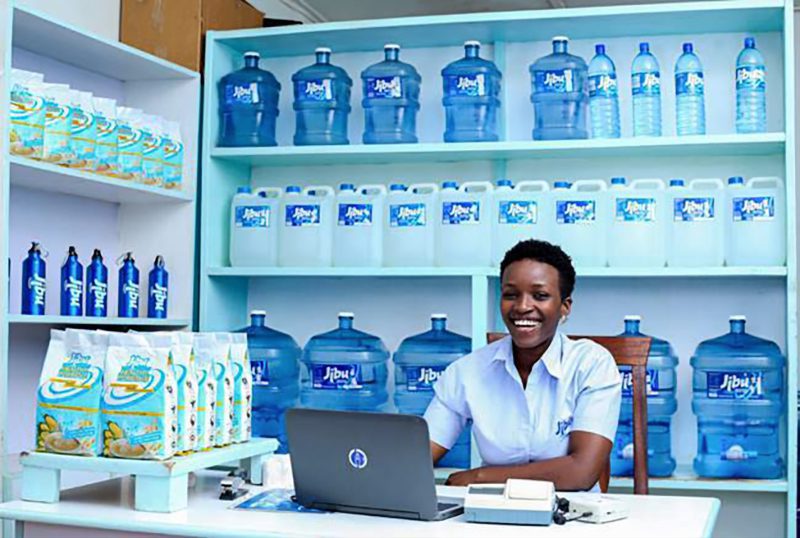
Jibu’s franchise model equips local entrepreneurs to provide safe drinking water to millions in Africa (Photo Credit: Jibu)
Currently, Jibu supports more than 2,830 full-time-equivalent jobs through its franchise network, almost half of which are youth. More than half of Jibu’s franchise owners in Rwanda, Kenya, Burundi, and Zambia are women. “Jibu has the potential to eradicate single-use plastic bottles and to transform the energy efficiency of the water treatment technology landscape,” said Galen Welsch. “Jibu’s water purification system is energy efficient and designed to ensure low water waste and cost-effective production, which enables attractive pricing to the subscribers to our solution, who no longer need to rely on home boiling and the associated carbon emissions. Plus, returning and reusing our bottles significantly reduces pollution, and our decentralized production leads to fewer distribution-related emissions.”
Banka BioLoo began in 2008 when Namita Banka, in a meeting with Indian Railways officers as potential clients for her printer cartridge refilling business, heard complaints of non-functioning technology-enabled toilet systems installed on a few trains. She founded Banka BioLoo to provide improved sanitation solutions to the railways, and beyond. Joined a few years later by her husband, Sanjay Banka, as executive chairman, Namita serves as managing director for the social enterprise.
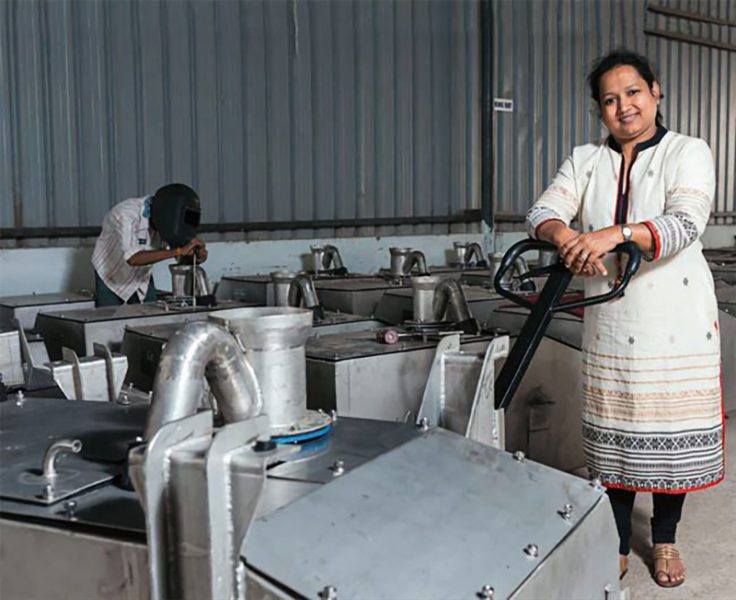
Namita Banka’s Banka BioLoo improves health outcomes for underserved communities across India (Photo Credit: Banka BioLoo)
To date, Banka BioLoo has installed more than 12,000 environmentally friendly toilet systems across India; sanitized more than 1,000 schools; served millions of rail passengers; and provided thousands of workers with access to sanitation at their workplaces. Their cost-effective, long-lasting, “fit-and-forget” bioloos serve marginalized and low-income populations, sold directly to consumers as well as through partnerships with governments, corporations, and philanthropies.
“Our climate-complementing bioloos contribute to climate resilience in a number of ways,” said Sanjay Banka. “They require no external infrastructure for fecal waste treatment, they use no energy, and they produce reusable water and biogas as byproducts — thus actually generating more water and energy sources than they consume.”
What they have in common are the hallmarks of social entrepreneurship: recognition of a local challenge, creation of an innovative solution to address that challenge, and delivery of a solution that can then be scaled and replicated elsewhere.
These four examples are just a few that I could share. What they have in common are the hallmarks of social entrepreneurship: recognition of a local challenge, creation of an innovative solution to address that challenge, and delivery of a solution that can then be scaled and replicated elsewhere.
The social entrepreneurship approach not only supports economically sustainable businesses, but also benefits the social enterprise’s customers and the local community on multiple levels: greater climate resilience, better health, personal and household financial gains, and the promise of improved opportunity and dignity.
If you’re interested in learning more about how social enterprises are improving the climate resilience of the world’s most vulnerable populations, I invite you to visit the Miller Center for Social Entrepreneurship website. And if you’re an investor looking to have a more meaningful impact in addressing the climate crisis for people living in poverty, please contact me directly (bhelms [at] scu [dot] edu).
Together, we must work to rewrite the global story of climate change.
Related Content
Comments
Deep Dives
RECENT
Editor's Picks
Webinars
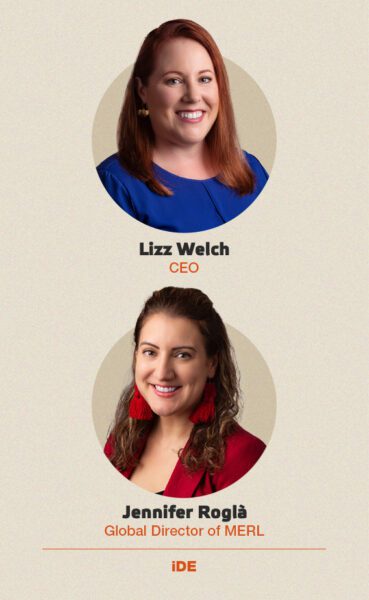
Featuring
Lizz Welch & Jennifer Roglà
iDE
May 16 - 12:00 PM EST
News & Events
Subscribe to our newsletter to receive updates about new Magazine content and upcoming webinars, deep dives, and events.
Become a Premium Member to access the full library of webinars and deep dives, exclusive membership portal, member directory, message board, and curated live chats.
0 Comments